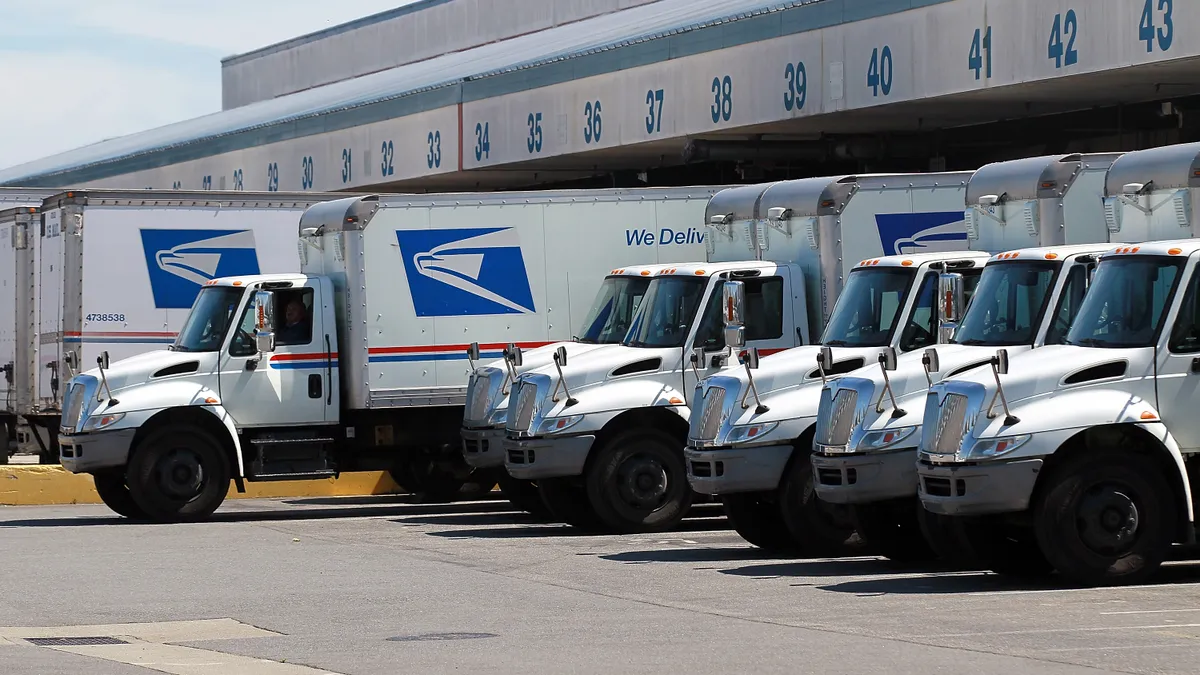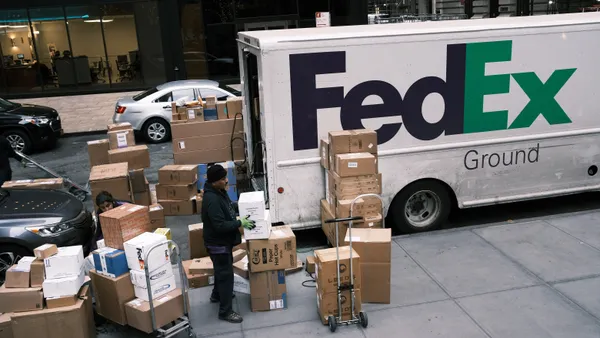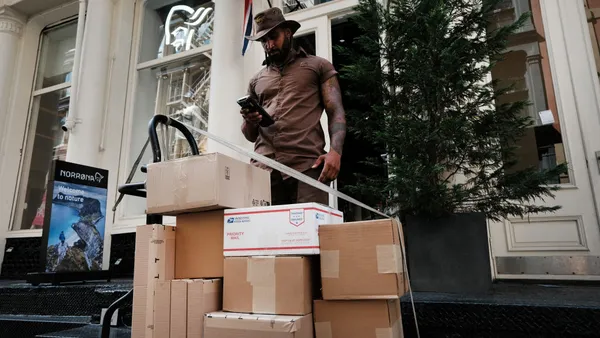The U.S. Postal Service's plan to revamp its network received pushback from the Postal Regulatory Commission on Friday, adding further criticism to the agency's overhaul under Postmaster General Louis DeJoy.
The Postal Service is shifting its mail and processing operations into modernized facilities across the country. It is also moving to consolidate dropoff and pickup activities at select post offices, a plan that aims to expedite transportation for mail near major facilities at the expense of some volume from rural locations.
The agency believes the initiatives could save up to $3.7 billion annually once fully implemented, according to an announcement from the Postal Regulatory Commission. But the Postal Service’s proposal hinges on unsubstantiated financial projections and risks "significant adverse effects" on certain mail products and rural communities, the regulator said.
"While the Commission acknowledges the challenges the Postal Service faces are significant, and change is essential, the Commission finds the Postal Service is irreversibly changing its network without laying a foundation for success," the Postal Regulatory Commission said.
Postal Service officials have said most volume will either see the same or faster delivery speeds as a result of the transportation changes. This includes package delivery services like Ground Advantage and Priority Mail.
However, the commission said instances of slower service standards due to the plan will disproportionately impact rural communities and single-piece First-Class Mail volume. It also pointed out drops in performance in Richmond, Virginia, and Atlanta, Georgia, where the Postal Service's changes have already been implemented, a development the agency's Office of Inspector General also flagged as a concern.
The commission urged the Postal Service to reconsider the plan as it continues to develop and implement the proposed changes. While the Postal Regulatory Commission can't block the proposed changes, the Postal Service's Board of Governors and U.S. Congress have the power to "directly hold the Postal Service accountable," it said in an accompanying document.
Despite criticism from Congress and regulators, DeJoy has voiced confidence in initiatives that comprise his 10-year "Delivering for America" plan to overhaul the financially ailing agency.
In an interview with Supply Chain Dive last week, DeJoy acknowledged service challenges the Postal Service has faced amid the network shakeup, placing much of the blame on the agency's collection processes that haven't adapted to declining mail volumes.
The transportation changes aims to change that by consolidating morning and afternoon dropoff and pickup activities at some rural post offices into one morning route. DeJoy said mail and package-hauling trucks leaving from Postal Service facilities earlier will result in better network productivity while keeping transportation activities on schedule.
"We're going to be able to bring product into our plants earlier, turn the lights on and off instead of running a 24-hour drawn out operation," DeJoy said.
DeJoy also touted improvements with shifting processing operations to new facilities. A regional processing and distribution center in Atlanta struggled with on-time delivery when it opened last year, sparking criticism from lawmakers. He said the facility is now processing around 1.4 million packages a night and can reach 9.5 million people with next-day delivery — capabilities that complement the agency's upcoming Next Day Priority service.
"I know it's been rocky for everybody in terms of the change, but I've had significant patience over the last three years trying to get to this point," DeJoy said.
Editor's note: This story was first published in our Logistics Weekly newsletter. Sign up here.














